April 2018
Sacred Ground
26/04/18 18:15
Ebooks Patel, Sacred Ground: Pluralism, Prejudice, and the Promise of America (Boston: Beacon Press), 2012.
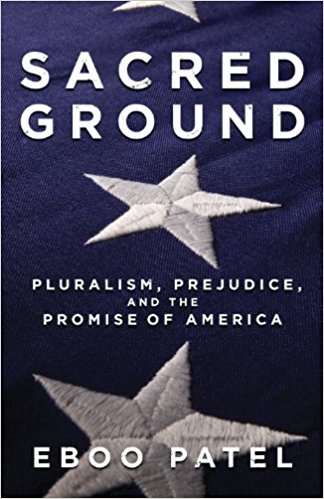
The book is an invitation to share in a better American and to share in the process of making our beloved country better for all of its people. The vision of a place where people of diverse traditions can live together in peace is a vision of our forebears and it is a vision that remains unfulfilled in our time. When we recognize hatred and bigotry as essentially anti-American forces, we can join together to work for a better future for all.
Here I Am
26/04/18 18:07
Jonathan Safran Foer, Here I am: A NNovel (New York: Farrar, Straus and Giroux), 2016.
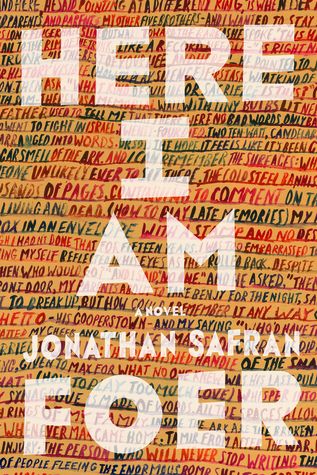
The characters aren't completely likable, but they do represent important parts of the story of contemporary Judaism and the connections that run deep in family. I think that the book is best appreciated when it is seen in context with other Jewish fiction of the 20th and 21st centuries. I'm not sure I can say I enjoyed the book, but I think it is an important book and represents the passing of the torch, in a sense, to a new generation of Jewish fiction writers.
Theft by finding
24/04/18 18:15
David Sedaris, Theft by Finding: Diaries 1977-2002 (New York: Little, Brown and Company), 2017.
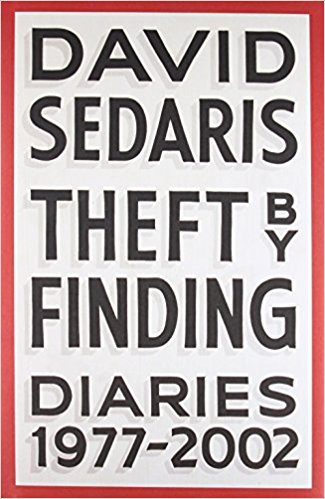
Knowing what I know, however, I appreciated Sedaris' courage in pulling together these stories from his past and crafting them into a published and very readable book. It is the kind of thing that inspires me even though there are so few similarities between his life and mine. An open window on his life also gives me the desire to learn more about other complex people who come into my life. Our stories reveal that we are far from simple. And that makes us fascinating. Sedaris certainly is.
A Land Gone Lonesome
24/04/18 18:05
Dan O'Neill, A Land Gone Lonesome: An Inland Voyage along the Yukon River (New York: Persius Books Group), 2006.
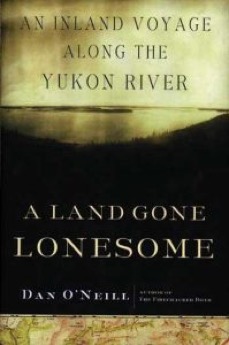
O'Neill paints what is probably the last portrait of the people living along the upper Yukon as the beautiful and sometimes hostile wilderness becomes a place with fewer and fewer settlers and the cabins and dwellings crumble back into the earth.
Of special delight to a reader like myself who is not from Alaska is O'Neill's insider perspective. He knows the people. He appreciates what they have done to make a living in that place. He tells their stories with honest and genuine love. I suspect that this will be a book worth reading decades from now as people look back and try to remember what it was like.
When Momma Speaks
23/04/18 18:23
Stephanie Buckhanon Crowder, When Momma Speaks: The Bible and Motherhood from a Womanist Perspective (Louisville, Kentucky: Westminster John Knox Press), 2016
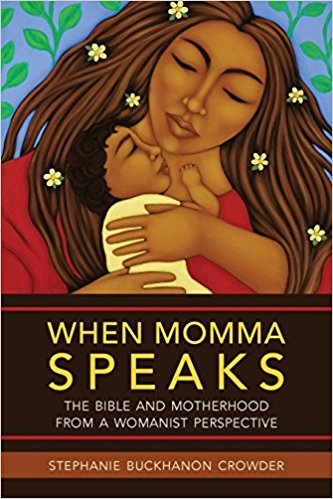
It does seem, however, that Crowder lost a bit of steam on the project. It might just be my perception, but it seems to me as if the early chapters are a bit more engaging and more thoroughly presented than later chapters. Nonetheless it is an important work and especially important for people like me who have had a distinctly white and distinctly male education.
This book would be an especially good book for small group study in a church setting.
Hillbilly Elegy
23/04/18 15:44
J.D. Vance, Hillbilly Elegy: A Memoir of a Family and Culture in Crisis (New York: Harper Collins), 2016
.
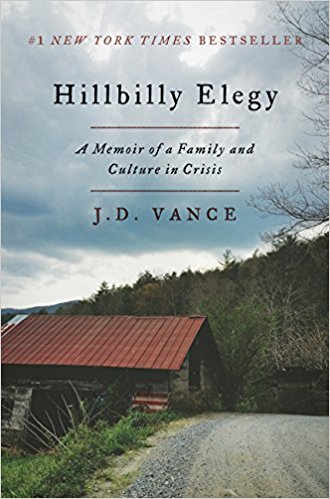
It is not a comprehensive analysis of the situations of all working class whites in the United States. It makes far too many assumptions about the nature of working class people based on its distinctly regional bias. I am not questioning the reporting of a family that started out in Appalachia and migrated to Ohio. But this is not the story of Western farm families or families whose living came from mining or timber or other sources.
Its narrow point of view, frankly, makes the book whiny, s if the troubles felt by Vance's family were somehow unique and as if class decline was something that only people with his color of skin feel. There are simply too many voices in our society today that use the displacement of those at the bottom of the economic ladder by the greedy denizens of the top to make excuses for maltreatment of immigrants and outright racism. Justice is not achieved by reaching out and striking those who are different. The elegy simply doesn't acknowledge how much folks have in common, but rather wants to make the plight of one family somehow greater and more compelling than that of others.
As memoirs go, it is a compelling story. As social commentary, it is decidedly narrow. It is probably worth reading, but falls short of "must read" in my opinion.